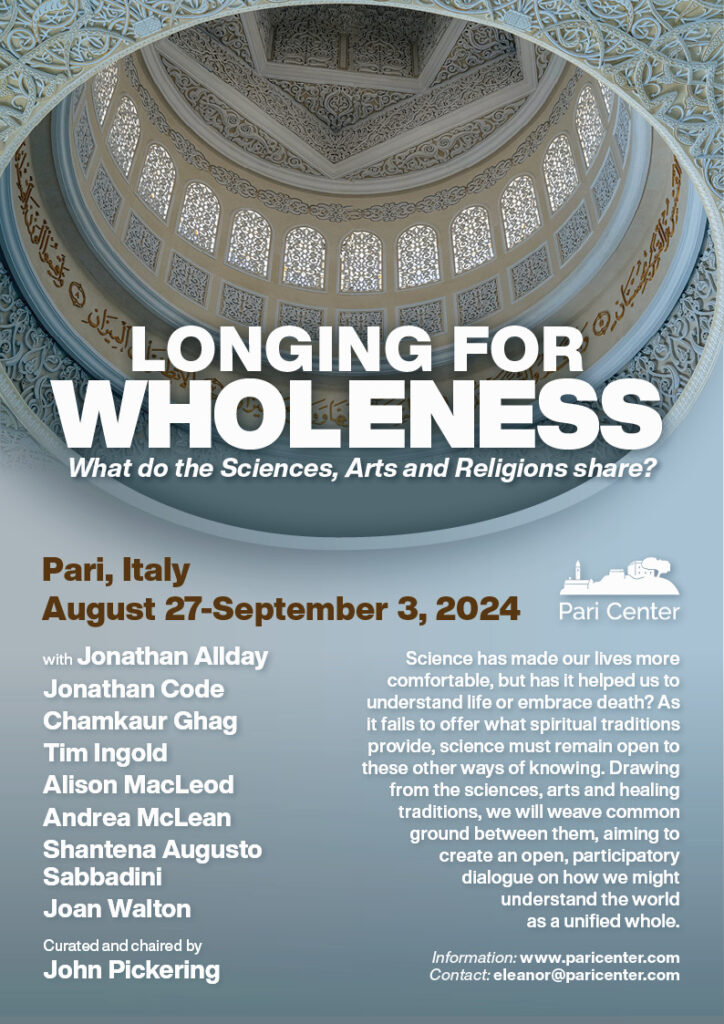Your cart is currently empty!
Physics in Flux

This is an excerpt from one of the presentations featured in the Pari Center’s event Longing for Wholeness, in Pari from August 27 to September 3, 2024.
Physics at once presents an incredible opportunity to study our environment, from the tiny to the enormous, but at the same time our ‘way of thinking’ can restrict breakthroughs as we grapple with outdated paradigms in need of evolution or discarding entirely. We will explore the relationship between apparent dichotomies through which we perceive our universe and place within it. From wave-particle duality to the left and right hemispheres of the brain, to the Quantum Field Theory and General Relativity divide that plays out in the quest to understand Dark Matter, it is becoming ever clearer that the way forward is to evolve past subjective/objective divides and come to recognise the Universe as process. Highly evolved philosophies, particularly those from the ancient East, can help us evaluate our current representation of reality and highlight the biases inherent in entrenched thought systems prevalent across Europe and the North America.

Professor Chamkaur Ghag is an astroparticle physicist leading the research at University College London (UCL) to experimentally detect dark matter in our galaxy. He is the international Spokesperson of the LZ Dark Matter Experiment, operating the world’s most sensitive dark matter detector in the Black Hills of South Dakota, and also works with novel quantum sensors for rare or exotic particle physics searches in the laboratory at UCL. Prior to joining UCL in 2012 and initiating the dark matter group he was a research associate at the University of California Los Angeles and the University of Edinburgh, where he completed his PhD in 2006. Chamkaur serves on several scientific advisory panels, including the Boulby Underground Science Facility, UK, where he operates cutting-edge low-background radio-assay facilities to enable rare-event searches. Chamkaur teaches the Climate & Energy physics course at UCL and collaborates widely outside fundamental physics within the arts, neuroscience and Earth sciences, deploying particle physics data analysis techniques to climate change related research and solutions.
